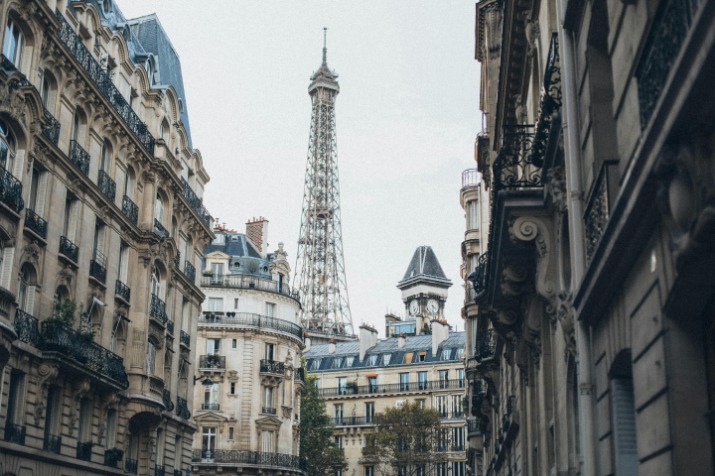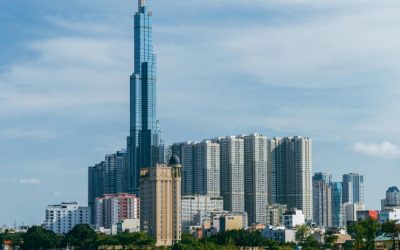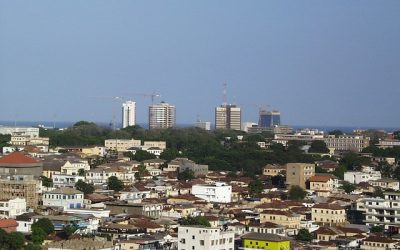Geography and Location
Geography and location play a crucial role in shaping the identity and development of a city. The capital city of Ghana, Accra, is strategically situated along the Atlantic coast, making it a vital center for trade, culture, and governance. Its geographical setting influences its climate, economy, and connections with other regions, highlighting the importance of location in understanding the city’s growth and significance.
Position within Ghana
Accra, the capital city of Ghana, is situated along the Gulf of Guinea on the southern coast of the country. It is located in the Greater Accra Region, which is in the southeastern part of Ghana. The city lies near the Atlantic Ocean, giving it a strategic position for maritime activities and trade. Its geographic position makes it a vital hub for political, economic, and cultural activities in Ghana and West Africa. Accra is easily accessible through major roads and transportation networks, positioning it as the central point within the country.
Main geographical features
Accra, the capital city of Ghana, is located along the Gulf of Guinea on the southern coast of West Africa. It serves as the political, economic, and cultural center of the country, with a strategic position that influences its geographical significance.
- Located on the Atlantic Ocean’s coast, providing a natural port and access to maritime trade.
- Characterized by a flat coastal plain with some hills in the hinterland.
- Surrounded by the Greater Accra Region, which is part of the Central Tongu and Dangme West districts.
- Features a tropical climate with a distinct wet and dry season, influencing its landscape and vegetation.
- Adjacent to important natural features like the Korle Lagoon and the Accra Plains.
Climate and Weather Patterns
The capital city of Ghana is Accra, located along the Gulf of Guinea on the Atlantic Ocean. Its geographical position places it at the southeastern coast of the country, serving as an important economic and political hub.
Accra’s climate is classified as a tropical savanna climate, characterized by warm temperatures throughout the year. The city experiences distinct wet and dry seasons, with the rainy season typically occurring from April to June and September to November. Harmattan winds from the Sahara also influence the weather, bringing dry and dusty conditions during the dry season.
Weather patterns in Accra are generally warm and humid, with average temperatures ranging from 24°C to 31°C. The city benefits from relatively consistent maritime influence due to its proximity to the ocean, which moderates temperature extremes and contributes to high humidity levels, especially during the rainy season.
Historical Background
Accra, the capital city of Ghana, has a rich historical background that reflects the country’s diverse cultural heritage and colonial past. Originally a small fishing settlement, Accra grew significantly during the 19th and 20th centuries, influenced by trade, British colonial rule, and urban development. Its history is marked by its role in Ghana’s journey to independence and its development into a vibrant political and economic hub in West Africa.
Founding and early history
The capital city of Ghana, Accra, has a rich historical background that dates back centuries. It has evolved from a small fishing village into a vibrant metropolis and an important political, economic, and cultural center in West Africa.
- Accra’s origins trace back to the late 15th century when it was known as a settlement for the Ga people, who have inhabited the area for generations.
- During the 16th and 17th centuries, the city became a key trading hub, especially for gold, ivory, and slaves, attracting traders from various regions.
- In the 19th century, Accra began to develop under British colonial rule, becoming the administrative and commercial capital of the Gold Coast colony.
- The city’s strategic location on the Gulf of Guinea contributed to its growth and prominence during the colonial period.
- Following Ghana’s independence in 1957, Accra was officially designated as the capital of the newly independent nation, further cementing its importance in the country’s history.
Colonial era and independence
Accra, the capital city of Ghana, has a rich historical background that reflects its significance in the country’s development. During the colonial era, Accra served as a central hub for British administration and trade, playing a vital role in Ghana’s economic and political landscape. The city experienced considerable growth under colonial rule, with infrastructure and institutions established to support governance and commerce. Ghana’s journey to independence was marked by a strong desire for self-rule, culminating in the peaceful transition in 1957 when Ghana became the first African nation south of the Sahara to gain independence from colonial powers. This historic milestone laid the foundation for Accra to evolve into a vibrant metropolis and the political, economic, and cultural heart of Ghana today.
Recent historical developments
The capital city of Ghana, Accra, has a rich historical background that reflects the diverse cultural and colonial influences over centuries. Originally inhabited by local Ga people, Accra became a key center during the trans-Atlantic slave trade and later developed under British colonial rule, gaining city status in the early 20th century. The city grew as a hub for trade, administration, and commerce, shaping its unique identity. In recent years, Accra has experienced rapid urbanization and economic development, transforming into a vibrant metropolis with modern infrastructure, international businesses, and a burgeoning arts scene. These recent developments highlight Accra’s importance as a dynamic capital that continues to evolve while maintaining its historical roots.
Demographics
The demographics of Accra, the capital city of Ghana, play a significant role in shaping its vibrant culture and dynamic urban landscape. Understanding the population characteristics, including age distribution, ethnicity, and migration patterns, provides valuable insights into the city’s development and social fabric. These demographic factors influence everything from economic growth to cultural diversity in Accra.
Population statistics
The capital city of Ghana, Accra, boasts a diverse and growing population that reflects the nation’s rich cultural tapestry. With an estimated population of over 2.5 million residents, Accra is one of the most densely populated urban centers in West Africa. The population is characterized by a youthful demographic, with a significant proportion of residents under the age of 30, highlighting Ghana’s overall youthful population trend. Ethnic groups in Accra include Akans, Ewe, Ga, and others, contributing to a vibrant multicultural environment. The city continues to experience rapid urbanization, driven by internal migration from rural areas seeking economic opportunities, which significantly influences demographic shifts and population statistics in the region. Overall, Accra’s demographics underscore its role as a hub of culture, commerce, and growth in Ghana.
Ethnic composition
The capital city of Ghana, Accra, is known for its diverse demographics and rich ethnic composition. The city is a melting pot of various ethnic groups, reflecting the country’s cultural mosaic. The Ga people are historically the indigenous inhabitants of Accra, forming an integral part of the city’s identity. In addition to the Ga, Accra is home to numerous other ethnic groups such as the Akan, Mole-Dagbon, Ewe, and Gurma, among others. This diversity is also reflected in the city’s languages, with English serving as the official language, while local languages like Ga, Twi, Ewe, and others are widely spoken. The demographic landscape of Accra continues to evolve due to urbanization and migration, making it a vibrant and multicultural metropolis. This ethnic variety contributes significantly to the social, cultural, and economic vibrancy of the city, shaping its unique character within Ghana.
Languages spoken
Accra, the capital city of Ghana, boasts a diverse demographic profile with a rapidly growing population comprising various ethnic groups. The city’s residents include Akans, Ewe, Mole-Dagbon, Ga-Dangme, and other smaller communities, reflecting Ghana’s rich cultural tapestry. Arabic, French, and other international languages are also spoken by expatriates and for business purposes, but English remains the official language used in government, education, and media. This multilingual environment contributes to the vibrant and dynamic culture of Accra, making it a hub of both tradition and modernity.
Religion and cultural diversity
Accra, the capital city of Ghana, is renowned for its rich demographics, vibrant religious landscape, and diverse cultural heritage. The population of Accra reflects a mix of ethnic groups, including the Ga-Dangme, Akan, Ewe, Mole-Dagbon, and many others, contributing to the city’s dynamic social fabric. Religiously, Accra is predominantly Christian, but it also hosts a significant Muslim community and practitioners of traditional African religions, showcasing religious tolerance and diversity. Culturally, the city is a melting pot of traditions, languages, and customs, which are celebrated through festivals, music, dance, and cuisine. This diversity makes Accra a unique and lively metropolis that embodies the multicultural spirit of Ghana.
Economy and Infrastructure
The capital city of Ghana, Accra, serves as the economic and infrastructural hub of the country. It plays a vital role in the nation’s development, hosting diverse industries, bustling markets, and modern transportation networks. The city’s infrastructure supports a growing population and facilitates commerce, making Accra a key center for Ghana’s economic activities and urban progress.
Major economic activities
The capital city of Ghana, Accra, plays a pivotal role in the country’s economy and infrastructure development. It serves as a central hub for commerce, trade, and industry, contributing significantly to national income. Accra’s vibrant markets, modern business districts, and efficient transportation networks facilitate the growth of various economic activities.
Major economic activities in Accra include manufacturing, services, retail trading, and port-related operations. The city’s port, one of the busiest in West Africa, handles a substantial portion of Ghana’s import and export activities, boosting the economy. Additionally, the thriving hospitality and tourism sectors also contribute to the local economy, driven by cultural sites and business conferences.
In terms of infrastructure, Accra boasts a well-developed road network, modern telecommunications, and substantial investment in urban facilities. The city continues to expand its infrastructural capacity to accommodate its growing population and economic demands, making it a key driver of Ghana’s overall economic progress.
Commercial centers and markets
The capital city of Ghana, Accra, boasts a growing economy supported by diverse sectors such as manufacturing, services, and commerce. Modern infrastructure developments have improved transportation, utilities, and connectivity across the city, enhancing its overall business environment. Accra is home to numerous commercial centers and markets where local vendors and international traders converge, reflecting the city’s vibrant economic life. These markets, including the popular Kejetia Market and others, serve as vital hubs for trade, offering a wide range of goods from daily necessities to luxury items. The city’s economic resilience and robust infrastructure play a crucial role in sustaining Ghana’s national development and attracting investments.
Transportation networks
The capital city of Ghana, Accra, is a vital hub for the nation’s economy and infrastructure development. It hosts numerous commercial and financial institutions that drive economic activities and growth. The city’s infrastructure is continually expanding to accommodate its growing population and business needs, with roads, utilities, and public services undergoing modernization. Transportation networks in Accra are crucial for connecting various parts of the city and facilitating movement of people and goods. Major roads and highways link Accra to other regions of Ghana, while ongoing investments aim to improve public transportation. Additionally, the city is served by Kotoka International Airport, which enhances national and international connectivity. Overall, Accra’s economic and transportation infrastructure plays a central role in its status as Ghana’s economic and administrative center.
Utilities and public services
The capital city of Ghana, Accra, boasts a developing economy supported by trade, services, and manufacturing sectors. Its infrastructure includes modern roads, airports, and ports that facilitate commerce and connectivity. Utilities such as electricity and water supply are continually improving to meet the growing population’s needs. Public services, including healthcare, education, and transportation, are expanding to provide better quality of life for residents and visitors alike.
Landmarks and Tourism
The capital city of Ghana, Accra, is a vibrant hub of culture, history, and tourism. Known for its rich heritage, bustling markets, and beautiful beaches, Accra offers visitors a unique blend of tradition and modernity. Exploring its famous landmarks provides a glimpse into Ghanaian history and allows travelers to experience the warmth and hospitality of the city’s residents.
Historical sites
The capital city of Ghana, Accra, is a vibrant hub of historical landmarks and tourism attractions that draw visitors from around the world. Visitors can explore the iconic Cape Coast Castle, a significant historical site that tells the story of Ghana’s involvement in the trans-Atlantic slave trade. The W.E.B. Du Bois Center offers insights into Ghana’s rich history and its role in Pan-Africanism. The Independence Square, also known as Black Star Square, is a symbol of Ghana’s independence and national pride. Accra is also home to the National Museum, where tourists can learn about Ghanaian culture, history, and traditional art. These landmarks not only provide a glimpse into Ghana’s past but also serve as popular destinations for travelers seeking to understand the heritage and spirit of the country.
Museums and cultural institutions
The capital city of Ghana, Accra, is a vibrant hub of landmarks and cultural institutions that attract tourists from around the world. It combines historical significance with modern attractions, making it a must-visit destination for anyone interested in Ghanaian heritage and culture.
- Independence Square – A symbol of Ghana’s independence and a site for national celebrations.
- W.E.B. Du Bois Center – A museum dedicated to the life and legacy of the American civil rights activist who chose to live in Ghana.
- National Museum of Ghana – Offers insights into Ghanaian history, art, and culture with extensive exhibits and artifacts.
- Arts Center – A bustling market showcasing traditional crafts, textiles, and artworks unique to Ghana.
- Kwame Nkrumah Mausoleum – The final resting place of Ghana’s first president, featuring impressive architecture and historic exhibits.
- James Town Lighthouse – A historic lighthouse providing panoramic views of the Atlantic Ocean and access to the fishing district.
- Artists Alliance Gallery – Famous for its vibrant masks, sculptures, and paintings representing Ghanaian traditions.
- Labadi Beach – A popular spot for leisure and cultural performances, often hosting drumming and dance events.
- Efua Sutherland Children’s Park and Museum – A cultural site dedicated to children’s education and Ghanaian arts.
- National Culture Centre – Showcases Ghanaian music, dance, and crafts, providing immersive cultural experiences for visitors.
Parks and recreational areas
Accra, the capital city of Ghana, is a vibrant hub of landmarks and tourist attractions that draw visitors from around the world. The city is renowned for its rich history, cultural sites, and lively markets that offer a unique glimpse into Ghanaian life. Visitors can explore historical landmarks such as the Kwame Nkrumah Mausoleum and the W.E.B. Du Bois Center which celebrate Ghana’s independence movement and esteemed figures.
Accra also boasts numerous parks and recreational areas perfect for leisure and outdoor activities. Labadi Beach is a popular spot for relaxation and water sports, while Legon Botanical Gardens offers a tranquil environment with lush greenery and walking trails. The Achimota Forest Reserve provides opportunities for nature walks and wildlife viewing, making the city a well-rounded destination for cultural exploration and outdoor recreation.
Events and festivals
Accra, the vibrant capital city of Ghana, is a renowned hub for landmarks, tourism, events, and festivals that attract visitors from around the world. Visitors can explore historic sites such as the Cape Coast Castle and the W.E.B. Du Bois Center, which offer rich insights into Ghana’s history and culture. The Labadi Beach and the National Museum are also popular destinations that showcase the city’s diverse attractions. Throughout the year, Accra hosts various cultural and music festivals, including the Chale Wote Street Art Festival and the Hogbetsotso Festival, celebrating Ghanaian arts, traditions, and community spirit. These events provide visitors with a unique opportunity to experience authentic Ghanaian culture and hospitality. Accra’s lively atmosphere and rich heritage make it a compelling destination for travelers seeking both historical insights and vibrant festivities.
Government and Administrative Structure
The government and administrative structure of Ghana play a vital role in shaping the governance of its capital city, Accra. This framework comprises various institutions and agencies that ensure effective administration, policy implementation, and public service delivery. Understanding this structure provides insight into how the city is managed and developed as a vibrant center of political, economic, and cultural activities in Ghana.
Role as capital city
The capital city of Ghana, Accra, serves as the political, administrative, and economic hub of the country. It is the central point for government activities and decision-making processes, housing numerous government ministries, departments, and foreign missions. Accra’s administrative structure is organized to ensure effective governance and public service delivery, reflecting its importance as the nation’s capital.

- Government and Administrative Structure:
- The city is governed by the Greater Accra Regional Coordinating Council, overseeing regional development and administration.
- Accra is divided into various districts, each managed by local government authorities responsible for local administration.
- The city hosts the seat of Ghana’s central government, including the Presidential Palace, Parliament House, and various national ministries.
- Role as the Capital City:
- Accra functions as the political nucleus where key decisions affecting the nation are made.
- It serves as a major economic center with markets, industries, and commercial centers contributing to Ghana’s GDP.
- The city is a cultural hub, hosting national festivals, landmarks, and institutions that showcase Ghanaian heritage.
- Accra also plays a crucial role in diplomatic relations, being home to foreign embassies and international organizations.
Government institutions
The capital city of Ghana, Accra, serves as the administrative and political hub of the country, housing numerous government institutions and offices. Ghana’s government operates under a presidential system with a clear separation of powers among the executive, legislative, and judiciary branches. The President is both the head of state and government, supported by a Cabinet comprised of ministers responsible for various sectors. The Parliament of Ghana is the unicameral legislative body responsible for making laws and overseeing the executive. The judiciary, headed by the Chief Justice, ensures the interpretation and application of laws, maintaining justice across the nation. Several government ministries and agencies are based in Accra, focusing on areas such as finance, health, education, and infrastructure, which facilitates effective governance and administration throughout Ghana.
Local governance and administrative divisions
The capital city of Ghana, Accra, serves as the political, administrative, and economic hub of the country. It boasts a well-organized government and administrative structure designed to facilitate effective governance and public service delivery.
Baharding on the administrative framework, Ghana operates under a unitary system with local governance playing a crucial role in decentralization and grassroots development. Accra, as the capital, hosts various government institutions and local authorities that ensure efficient management of resources and services.
- Government Structure:
- The President is the head of state and government, overseeing the executive branch.
- The Parliament of Ghana is responsible for making laws and approving policies.
- The Judiciary operates independently to ensure justice and uphold the constitution.
- Local Governance:
- Accra is divided into multiple municipal assemblies and metropolitan districts, such as Accra Metropolitan Assembly (AMA).
- These local authorities manage local development, sanitation, transportation, and community services.
- Local government officials are elected by residents to represent and serve their communities.
- Administrative Divisions:
- The Greater Accra Region is subdivided into districts, districts assemblies, and traditional councils.
- Each district is overseen by a district assembly chairperson and has appointed and elected members.
- Traditional leadership, including chiefs, complement administrative structures and uphold cultural heritage.
Overall, Accra’s government and administrative framework facilitate a balanced approach to urban management and development, aiming to improve the quality of life for its residents and promote national progress.
Education and Culture
The capital city of Ghana, Accra, is a vibrant center of education and culture that reflects the rich history and diverse traditions of the nation. As a hub for learning, Accra hosts numerous universities, schools, and cultural institutions that promote knowledge, creativity, and cultural exchange. The city’s dynamic environment fosters a deep appreciation for Ghanaian heritage while encouraging innovation and progress in education and the arts.
Educational institutions
The capital city of Ghana, Accra, is a vibrant hub of education and culture, reflecting the rich history and diversity of the region. Educational institutions in Accra range from prestigious universities to various secondary and primary schools, offering quality education to both locals and international students. Notable universities like the University of Ghana and Ghana Technology University College play significant roles in higher education and research. The city also hosts numerous cultural centers, museums, and art galleries that showcase Ghanaian heritage, traditions, and contemporary arts. These institutions preserve and promote the country’s history, fostering a sense of identity and pride among its residents. Accra’s educational and cultural landscape makes it a dynamic city where tradition and modernity coalesce seamlessly.
Arts, music, and cultural heritage
Accra, the vibrant capital city of Ghana, is a hub of rich cultural heritage and artistic expression. The city boasts a diverse array of art galleries, theaters, and music venues that showcase both traditional and contemporary Ghanaian culture. Education plays a vital role in preserving this heritage, with numerous institutions dedicated to the study and promotion of local arts, music, and history. Visitors and residents alike can experience lively music scenes, including highlife, hiplife, and traditional drumming, which reflect Ghana’s deep-rooted cultural identity. Accra’s commitment to cultural education and artistic innovation makes it a dynamic center where history and modernity blend seamlessly, celebrating the nation’s artistic legacy and its ongoing cultural evolution.
Media and communications
The capital city of Ghana, Accra, is a vibrant hub of education and culture, reflecting the rich history and diverse heritage of the nation. It is home to several prominent educational institutions, including the University of Ghana, which attracts students from across the continent and beyond, fostering academic excellence and research. Accra’s cultural scene is equally dynamic, showcasing traditional festivals, music, dance, and art that celebrate Ghanaian identity and history. Furthermore, the city plays a vital role in media and communications, with numerous radio stations, television channels, and modern digital platforms that disseminate information, promote local culture, and connect Ghanaians to the world. As a center for innovation and culture, Accra continues to influence and shape the social and educational landscape of Ghana.
Urban Development and Challenges

Urban development in the capital city of Ghana, Accra, plays a vital role in shaping the nation’s growth and progress. As the city expands rapidly, it faces numerous challenges such as population density, infrastructure needs, and sustainable growth. Addressing these issues is essential for creating a livable, efficient, and resilient urban environment for the residents of Accra.
City planning and infrastructure projects
The capital city of Ghana, Accra, has experienced rapid urban development in recent years, leading to both opportunities and significant challenges. As a hub of economic activity and culture, Accra faces pressures related to population growth, congestion, and strain on its infrastructure. Effective city planning is essential to manage these issues and ensure sustainable development for its residents. Infrastructure projects such as improved transportation networks, modern housing, and enhanced sanitation systems are critical to supporting the growing urban population. Addressing these challenges requires integrated urban planning strategies that balance development needs with environmental sustainability and the quality of life for inhabitants.
Urbanization issues
Accra, the capital city of Ghana, is experiencing rapid urban development driven by increasing population growth and economic activities. This urbanization brings both opportunities and challenges as the city strives to modernize infrastructure and improve living standards. However, managing this growth remains a significant challenge, with issues such as traffic congestion, inadequate housing, and strained public services becoming more prominent.
One of the major problems faced by Accra is the expansion of informal settlements or slums, which often lack proper sanitation, water supply, and essential services. This leads to health risks and social inequalities among residents. Additionally, the rapid pace of urbanization puts pressure on transportation systems, causing frequent traffic jams and pollution, which affect daily life and environmental sustainability.
Furthermore, urban planning in Accra often struggles to keep up with development demands, resulting in unplanned growth and environmental degradation. Flooding during rainy seasons is another critical issue, worsened by poor drainage systems and deforestation. Addressing these challenges requires integrated planning, sustainable practices, and investment in infrastructure to ensure that urban growth benefits all residents and promotes a resilient, sustainable city.
Environmental concerns and sustainability
The capital city of Ghana, Accra, has experienced rapid urban development in recent decades, driven by population growth and economic expansion. This growth has led to a surge in infrastructure projects, commercial centers, and residential areas, transforming the city’s landscape significantly.
However, this rapid urbanization presents numerous challenges, including traffic congestion, inadequate housing, and strain on public services. Unplanned expansion often results in informal settlements that lack proper sanitation and access to clean water, impacting residents’ quality of life.
Environmental concerns are also prominent in Accra, with issues such as pollution, deforestation, and habitat destruction becoming increasingly critical. Waste management remains a significant problem, often leading to clogged drainage systems and flooding during rainy seasons.
Sustainable development efforts are vital to address these challenges. Initiatives focused on green urban planning, renewable energy adoption, and improved waste management are crucial for ensuring a resilient and environmentally friendly future for Accra. Balancing growth with conservation efforts can help the city thrive while protecting its natural resources for future generations.





0 Comments